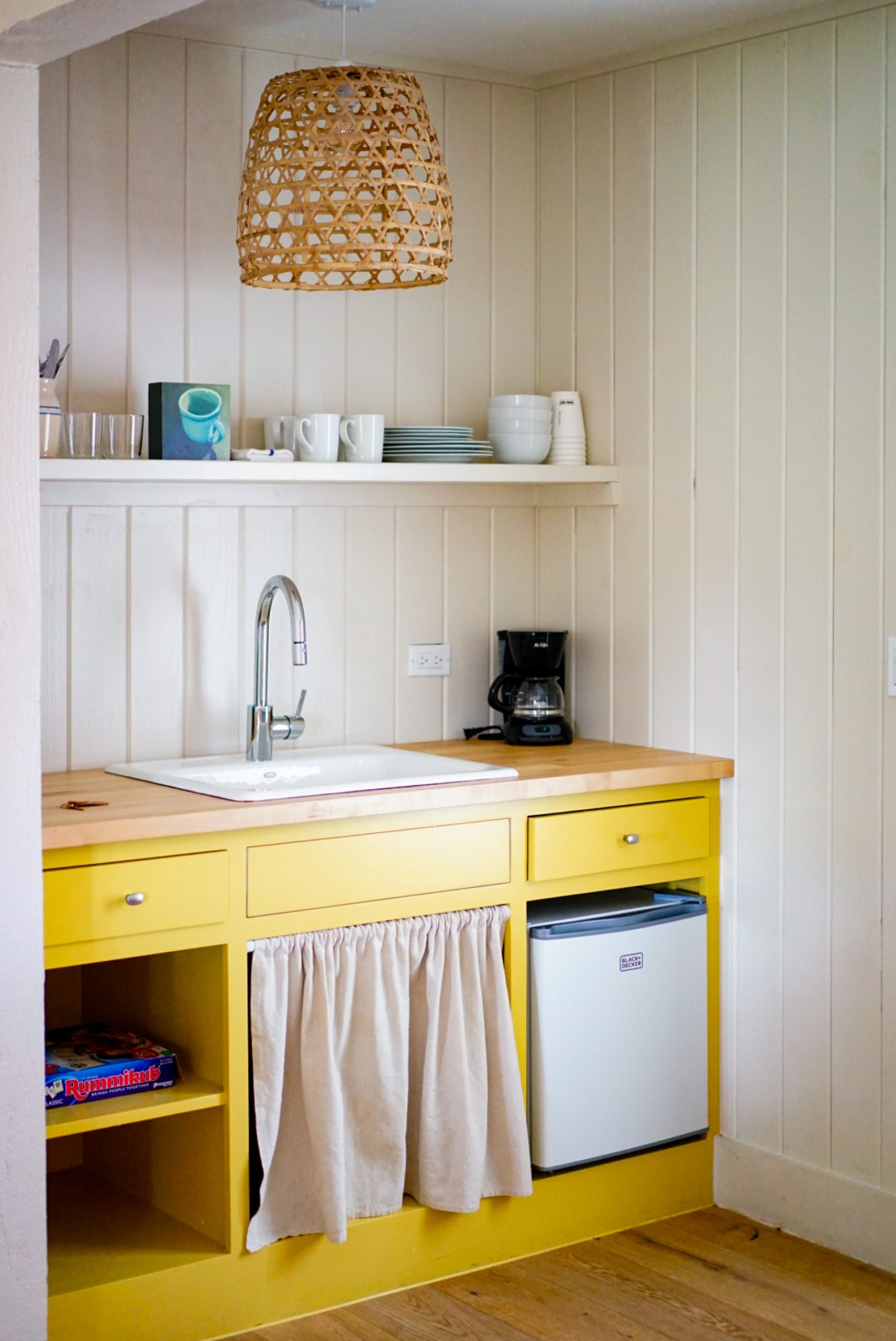
Having a small kitchen is usually not a big deal for professional cereal makers. However, for those who use their kitchen for more adventurous cooking endeavors, the limited space can quickly become an area that sparks stress and frustration. There are only so many times a person can handle the pots and pans avalanche after opening a cabinet, or too many bodies are trying to make food on close countertops before territorial instincts kick in swiftly. Bryn Carden, a full-time student at Texas Christian University, is familiar with the overcrowded feeling that can loom with a small kitchen. She put her passion for design to work and created this guide on how to optimize a small kitchen that allows cooks to stay organized and work efficiently to produce delicious food rather than cooking wars:
Step #1: Utilize Wall Space
Knives, pots, pans, tops, cutting boards, cooking tools, paper towels- what do they all have in common? They are great at taking up space in cabinets and on countertops. When cooking in a small kitchen, it helps to have all the freedom to function as much as possible. The first step to making space in those vital prepping and storage areas is to take to the walls. There are numerous different ways to utilize wall space for storage that not only clears up clusters but allows for everything needed to prep, stir, cut, and more to be visible, making moves around the kitchen less of a scavenger hunt.
Purchases such as a wall mount paper towel holder, a magnetic knife strip, a metal pegboard, or a few nails and hemp string can allow for things like paper towels, knives, pots and pans, cutting boards, and such to hang on the wall. Wall pegs can dangle coffee mugs, and screw-in hooks underneath mounted cabinets can host cooking tools.
Step #2: Magnet the Stress Away
Think of all the minutes wasted away trying to locate a dash of this or a sprinkle of that through a sea of spices that cannot be clearly seen all at once. Magnetizing spice storage solves this issue and saves cabinet space. There are several ways to execute this step from lowest cost to highest: hot glue one to two standard magnets to the back of spice bottles, create mason jar spice fridge magnets, or invest in magnetic spice containers. No matter how herbs are magnetized, a fridge is a perfect place to stick spices, leaving more wall space and cabinet space for other kitchenware.
Step #3: Store Food in Containers
Storing food in containers creates an organized and more aesthetically pleasing sight when opening up the pantry or on open shelves. Single individuals typically have less food in the kitchen than a family of four, so consider mason jars that take up less space and are a less expensive option over plastic storage containers. An expo marker can be used and easily erased for storage reuse on both plastic containers and glass jars.
What about fruit that does better outside of the fridge? Though some fruits rot in less time when stored in the refrigerator, not everyone likes to do that. Hanging a fruit basket from the ceiling or underneath mounted cabinets allows counters to stay clear for meal prep and cooking time. Not every tiny kitchen has a full pantry option with a standard door, but if that is the case, a plastic shoe holder hung on the back of the door can also serve just as great of a purpose for vaster amounts of fruit storage.

About Bryn Carden
Bryn Carden is a young entrepreneur and philanthropist with a passion for real estate and design. She is currently studying at Neeley School of Business, pursuing a major in Finance with a Real Estate Concentration. Besides working towards her degree, she has already begun her entrepreneurial journey as a co-founder of BF Hats and a creator of Styles for Smiles – a company selling bracelets to help fund cleft palate operations for children in developing countries.
The post Bryn Carden Furnishes Design Pointers on How to Optimize a Small Kitchen appeared first on Style Motivation.

